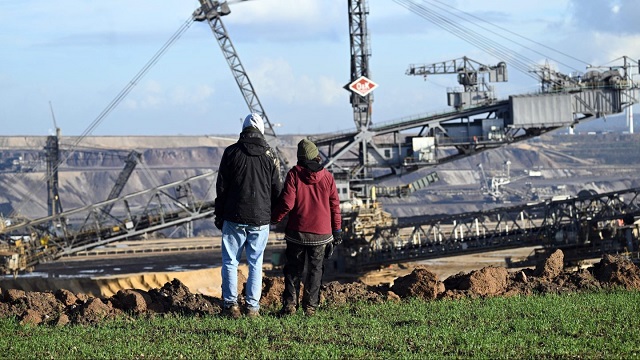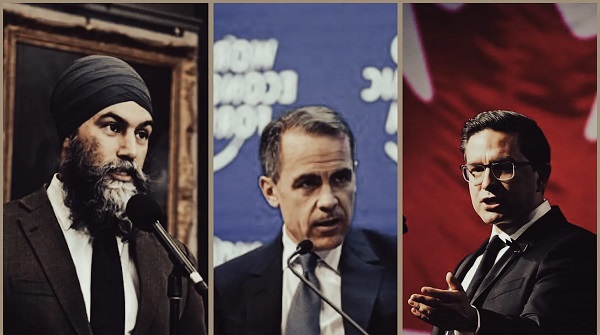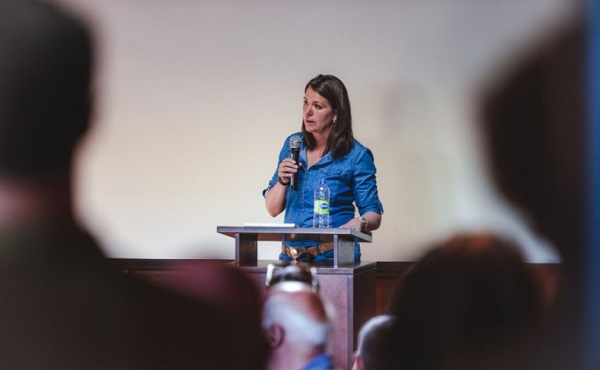Canadian Energy Centre
European governments are reassessing EU-directed green policies amid public unease

From the Canadian Energy Centre
By Shawn Logan
How ‘greenlash’ is forcing Europe to scale back ambitious net zero policies
European governments are beginning to sound the retreat on some foundational net zero policies in the wake of “greenlash” from increasingly overburdened citizens.
Russia’s invasion of Ukraine in 2022 prompted European governments to begin pivoting away from cheap Russian natural gas, which Europe increasingly relied on to backstop a laundry list of ambitious green policies.
But despite pledges by the European Union to “divest away from Russian gas as quickly as possible,” nearly 15% of overall EU gas imports still came from Russia in the first half of 2023, while the amount of liquefied natural gas (LNG) imported from Russia actually increased by 39.5% compared to the same period in 2021, prior to the Ukraine invasion.
Energy security and affordability have become central issues for Europeans amid a persistent global energy crisis, and that’s translated into a rethink of what had once seemed like unassailable green policies across Europe.
Here’s a look at how some countries are dealing with the new global reality:
Germany
Nothing is more symbolic of Europe’s retreat from its net zero ambitions than Germany seeing a wind farm dismantled to make room for the expansion of a lignite coal mine just outside of Dusseldorf.
And no European country has been more affected by the changing energy landscape than Germany, which introduced its multi-billion dollar Energiewende program in 2010, calling for a broad phaseout of fossil fuels and nuclear power, replacing them primarily with wind and solar power.
Today, without cheap and reliable natural gas backups due to sanctions against Russia, Germany has gone from Europe’s economic powerhouse to the world’s worst performing major developed economy, facing “deindustrialization” due to skyrocketing energy costs.
In addition to extending its deadline for shutting down coal plants until 2024, the German government has also scrapped plans for imposing tougher building insulation standards to reduce emissions as well as extending the deadline on controversial legislation to phase out oil and gas heating systems in homes, a decision the government admits will make it impossible to reach the country’s 2030 emissions targets.
A major car manufacturer, Germany’s opposition to an EU-wide ban on the sale of new combustion vehicles by 2035 softened the legislation to allow exceptions for those that run on e-fuels.
Germany’s quest for reliable energy exports prompted Chancellor Olaf Scholz to travel to Canada to make a personal appeal for Canadian LNG. He was sent home empty handed, advised there wasn’t a strong business case for the resource.
Great Britain
Britons have grown increasingly concerned about the cost of net zero policies, despite being largely supportive of striving for a greener future.
A YouGov poll in August found while 71% generally favoured Great Britain’s aim to reduce carbon emissions to net zero by 2050, some 55% agreed that policies should only be introduced if they don’t impose any additional costs for citizens. Only 27% agreed reaching the goal was important enough to warrant more spending.
That shift in public sentiment prompted Prime Minister Rishi Sunak to pump the brakes on some key policies enacted to reach the U.K.’s legally binding target of reaching net zero emissions by 2050.
In September, the government delayed its looming ban on new gas- and diesel-powered cars by five years to 2035, while also extending its phaseout of gas boilers in homes and suggesting exemptions for certain households and types of property.
“If we continue down this path, we risk losing the British people and the resulting backlash would not just be against specific policies, but against the wider mission itself,” Sunak said of the potential consequences of maintaining strict net zero policies.
The U.K. government also gave the green light for hundreds of new North Sea oil and gas licences, citing the need to bolster both energy security and the nation’s economy.
France
France’s net zero ambitions enjoy an advantage compared to its European peers due in large part to its significant fleet of nuclear power stations, which provide around 70 per cent of its electricity.
However, President Emmanuel Macron has often opted for a more pragmatic approach to reaching climate targets, noting any energy transition can’t leave citizens disadvantaged.
“We want an ecology that is accessible and fair, an ecology that leaves no one without a solution,” Macron said in September after ruling out a total ban on gas boilers, instead offering incentives to those looking to replace them with heat pumps.
Macron also famously dropped a proposed fuel tax in 2018 that sparked sweeping yellow vest protests across France when it was announced.
France has also extended the timeframe of its two remaining coal plants to continue operating until 2027, five years later than the plants were originally set to be shuttered.
Italy
Feeling the impacts of the global energy crisis, Italy has begun reassessing some of its previous commitments to transition goals.
Earlier this year, Italy pushed back on EU directives to improve the energy efficiency of buildings, which Italy’s national building association warned would cost some $400 billion euros over the next decade, with another $190 billion euros needed to ensure business properties met the required standards. The Italian government has called for exemptions and longer timelines.
Italy also warned the European Commission it would only support the EU’s phase out of combustion engine cars if it allows cars running on biofuels to eclipse the deadline, while further questioning a push to slash industrial emissions.
Paolo Angelini, deputy governor at the Bank of Italy, warned a rapid abandonment of fossil fuel-driven industries could have a devastating impact.
“If everybody divests from high-emitting sectors there will be a problem because if the economy does not adjust at the same time, things could blow up unless a miracle happens in terms of new technology,” he said.
Poland
Like Italy, Poland has dug in its heels against some EU net zero initiatives, and is actually suing the EU with the goal of overturning some of its climate-focused legislation in the courts.
“Does the EU want to make authoritarian decisions about what kind of vehicles Poles will drive and to increase energy prices in Poland? The Polish Government will not allow Brussels to dictate,” wrote Polish Climate and Environment Minister Anna Moskwa on X, formerly known as Twitter, in July.
In addition to looking to scrap the EU’s ban on combustion engine cars by 2035, Warsaw is also challenging laws around land use and forestry, updated 2030 emissions reduction targets for EU countries, and a border tariff on carbon-intensive goods entering the European Union.
With some 70% of its electricity generated by coal, Poland is one of Europe’s largest users of coal. And it has no designs on a rapid retreat from the most polluting fossil fuel, reaching an agreement with trade unions to keep mining coal until 2049.
Netherlands
The political consequences of leaning too far in on net zero targets are beginning to be seen in the Netherlands.
In March, a farmer’s protest party, the BBB or BoerBurgerBeweging (Farmer-Citizen Movement), shook up the political landscape by capturing 16 of 75 seats in the Dutch Senate, more than any other party, including the ruling coalition of the Labor and Green Parties.
The upstart party was formed in 2019 in response to government plans to significantly reduce nitrogen emissions from livestock by 2030, a move estimated to eliminate 11,200 farms and force another 17,600 farmers to significantly reduce their livestock.
What followed were nationwide protests that saw supermarket distribution centres blockaded, hay bales in flames and manure dumped on highways.
In November, Dutch voters will elect a new national government, and while BBB has dropped to fifth in polling, much of that support has been picked up by the fledgling New Social Contract (NSC), which has vowed to oppose further integration with EU policies, a similar stance offered by the BBB. The NSC currently tops the polls ahead of the Nov. 22 election.
2025 Federal Election
Canada’s pipeline builders ready to get to work

From the Canadian Energy Centre
“We’re focusing on the opportunity that Canada has, perhaps even the obligation”
It was not a call he wanted to make.
In October 2017, Kevin O’Donnell, then chief financial officer of Nisku, Alta.-based Banister Pipelines, got final word that the $16-billion Energy East pipeline was cancelled.
It was his job to pass the news down the line to reach workers who were already in the field.
“We had a crew that was working along the current TC Energy line that was ready for conversion up in Thunder Bay,” said O’Donnell, who is now executive director of the Mississauga, Ont.-based Pipe Line Contractors Association of Canada (PLCAC).
“I took the call, and they said abandon right now. Button up and abandon right now.
“It was truly surreal. It’s tough to tell your foreman, who then tells their lead hands and then you inform the unions that those three or four or five million man-hours that you expected are not going to come to fruition,” he said.

Workers guide a piece of pipe along the Trans Mountain expansion route. Photograph courtesy Trans Mountain Corporation
“They’ve got to find lesser-paying jobs where they’re not honing their craft in the pipeline sector. You’re not making the money; you’re not getting the health and dental coverage that you were getting before.”
O’Donnell estimates that PLCAC represents about 500,000 workers across Canada through the unions it works with.
With the recent completion of the Trans Mountain expansion and Coastal GasLink pipelines – and no big projects like them coming on the books – many are once again out of a job, he said.
It’s frustrating given that this could be what he called a “golden age” for building major energy infrastructure in Canada.
Together, more than 62,000 people were hired to build the Trans Mountain expansion and Coastal GasLink projects, according to company reports.
O’Donnell is particularly interested in a project like Energy East, which would link oil produced in Alberta to consumers in Eastern and Atlantic Canada, then international markets in the offshore beyond.
“I think Energy East or something similar has to happen for millions of reasons,” he said.
“The world’s demanding it. We’ve got the craft [workers], we’ve got the iron ore and we’ve got the steel. We’re talking about a nation where the workers in every province could benefit. They’re ready to build it.”

The “Golden Weld” marked mechanical completion of construction of the Trans Mountain Expansion Project on April 11, 2024. Photo courtesy Trans Mountain Corporation
That eagerness is shared by the Progressive Contractors Association of Canada (PCA), which represents about 170 construction and maintenance employers across the country.
The PCA’s newly launched “Let’s Get Building” advocacy campaign urges all parties in the Canadian federal election run to focus on getting major projects built.
“We’re focusing on the opportunity that Canada has, perhaps even the obligation,” said PCA chief executive Paul de Jong.
“Most of the companies are quite busy irrespective of the pipeline issue right now. But looking at the long term, there’s predictability and long-term strategy that they see missing.”
Top of mind is Ottawa’s Impact Assessment Act (IAA), he said, the federal law that assesses major national projects like pipelines and highways.
In 2023, the Supreme Court of Canada found that the IAA broke the rules of the Canadian constitution.
The court found unconstitutional components including federal overreach into the decision of whether a project requires an impact assessment and whether a project gets final approval to proceed.
Ottawa amended the act in the spring of 2024, but Alberta’s government found the changes didn’t fix the issues and in November launched a new legal challenge against it.
“We’d like to see the next federal administration substantially revisit the Impact Assessment Act,” de Jong said.
“The sooner these nation-building projects get underway, the sooner Canadians reap the rewards through new trading partnerships, good jobs and a more stable economy.”
Canadian Energy Centre
First Nations in Manitoba pushing for LNG exports from Hudson’s Bay

From the Canadian Energy Centre
By Will Gibson
NeeStaNan project would use port location selected by Canadian government more than 100 years ago
Building a port on Hudson’s Bay to ship natural resources harvested across Western Canada to the world has been a long-held dream of Canadian politicians, starting with Sir Wilfred Laurier.
Since 1931, a small deepwater port has operated at Churchill, Manitoba, primarily shipping grain but more recently expanding handling of critical minerals and fertilizers.
A group of 11 First Nations in Manitoba plans to build an additional industrial terminal nearby at Port Nelson to ship liquefied natural gas (LNG) to Europe and potash to Brazil.
Robyn Lore, a director with project backer NeeStaNan, which is Cree for “all of us,” said it makes more sense to ship Canadian LNG to Europe from an Arctic port than it does to send Canadian natural gas all the way to the U.S. Gulf Coast to be exported as LNG to the same place – which is happening today.
“There is absolutely a business case for sending our LNG directly to European markets rather than sending our natural gas down to the Gulf Coast and having them liquefy it and ship it over,” Lore said. “It’s in Canada’s interest to do this.”
Over 100 years ago, the Port Nelson location at the south end of Hudson’s Bay on the Nelson River was the first to be considered for a Canadian Arctic port.
In 1912, a Port Nelson project was selected to proceed rather than a port at Churchill, about 280 kilometres north.
The Port Nelson site was earmarked by federal government engineers as the most cost-effective location for a terminal to ship Canadian resources overseas.
Construction started but was marred by building challenges due to violent winter storms that beached supply ships and badly damaged the dredge used to deepen the waters around the port.
By 1918, the project was abandoned.
In the 1920s, Prime Minister William Lyon MacKenzie King chose Churchill as the new location for a port on Hudson’s Bay, where it was built and continues to operate today between late July and early November when it is not iced in.
Lore sees using modern technology at Port Nelson including dredging or extending a floating wharf to overcome the challenges that stopped the project from proceeding more than a century ago.
He said natural gas could travel to the terminal through a 1,000-kilometre spur line off TC Energy’s Canadian Mainline by using Manitoba Hydro’s existing right of way.
A second option proposes shipping natural gas through Pembina Pipeline’s Alliance system to Regina, where it could be liquefied and shipped by rail to Port Nelson.
The original rail bed to Port Nelson still exists, and about 150 kilometers of track would have to be laid to reach the proposed site, Lore said.
“Our vision is for a rail line that can handle 150-car trains with loads of 120 tonnes per car running at 80 kilometers per hour. That’s doable on the line from Amery to Port Nelson. It makes the economics work for shippers,” said Lore.
Port Nelson could be used around the year because saltwater ice is easier to break through using modern icebreakers than freshwater ice that impacts Churchill between November and May.
Lore, however, is quick to quell the notion NeeStaNan is competing against the existing port.
“We want our project to proceed on its merits and collaborate with other ports for greater efficiency,” he said.
“It makes sense for Manitoba, and it makes sense for Canada, even more than it did for Laurier more than 100 years ago.”
-

 Alberta1 day ago
Alberta1 day agoNew Alberta Election Act bans electronic vote counting machines, lowers threshold for recalls and petitions
-

 Alberta1 day ago
Alberta1 day agoHours after Liberal election win, Alberta Prosperity Project drumming up interest in referendum
-

 Alberta2 days ago
Alberta2 days agoPremier Danielle Smith responds to election of Liberal government
-

 Banks1 day ago
Banks1 day agoTD Bank Account Closures Expose Chinese Hybrid Warfare Threat
-

 2025 Federal Election11 hours ago
2025 Federal Election11 hours agoNDP Floor Crossers May Give Carney A Majority
-

 2025 Federal Election1 day ago
2025 Federal Election1 day agoPost election…the chips fell where they fell
-

 Alberta20 hours ago
Alberta20 hours agoPremier Danielle Smith hints Alberta may begin ‘path’ toward greater autonomy after Mark Carney’s win
-

 Business5 hours ago
Business5 hours agoScott Bessent says U.S., Ukraine “ready to sign” rare earths deal




